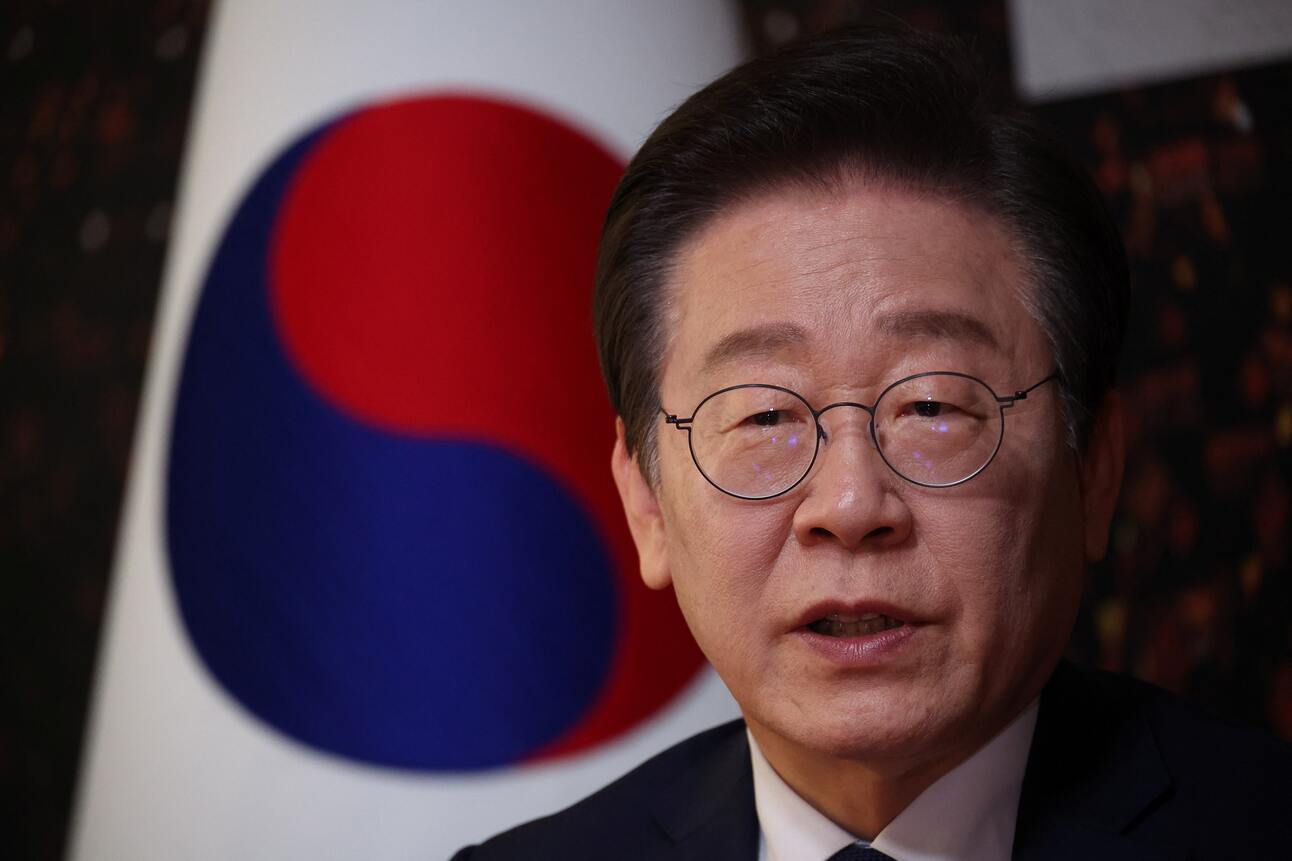
Hi Global Recap readers,
Imagine you're leading a country that's struggling economically, just like your neighbors.
Now, you're stuck between two choices:
One country wants you to pay more to access its markets, hurting your economy even more in the process. And to top it off, it wants your support in its standoff with a rival nation.
Meanwhile, that rival is offering you better terms. It might not be a windfall, but at least it won’t leave your economy worse off.
💭 This isn’t just a hypothetical. It’s the real dilemma South Korea faces, caught between the US and China, and it could shape how Asia approaches trade in the US-China standoff.
👇 Which way do you go? Stick around, we’ll dig into the details soon.
🌐 WORLD
Fast Scroll News

Nigerian Foreign Minister Yusuf Tuggar
🇳🇬 Nigeria Rejects Deportees. Nigeria just told the US it won’t take in migrants and foreign prisoners from Venezuela and other third countries, even under pressure.
Foreign Minister Yusuf Tuggar said, “We have enough problems of our own.”
The US has reportedly been pressuring several African countries with tariffs and visa limits to force compliance, but Nigeria isn’t backing down.
The US hasn’t confirmed the pressure campaign, but visa cuts for Nigeria, Ethiopia, and Cameroon landed just days after leaders declined the deal.

🇮🇷 US Admits Damage. Satellite images confirm an Iranian missile struck Al Udeid Air Base in Qatar on June 23, damaging a $15 million communications dome.
Iran fired the volley in retaliation for US strikes on its nuclear sites, just days before the Israel-Iran ceasefire kicked in.
It’s the first time the Pentagon has acknowledged a direct hit, walking back Trump's earlier claims that Patriots took out 13 of 14 missiles and that the last one missed so badly it wasn’t worth intercepting.
The base stayed fully operational, and no injuries were reported.

🇺🇸 Senate Backs Ukraine Aid. The Senate Armed Services Committee just approved $500 million in military aid for Ukraine, bumping next year’s allocation up from $300 million and extending support through 2028.
The package is part of a $925 billion defense bill passed 26–1 on July 9.
But the problem is, the House version keeps Ukraine funding flat, so expect a tug-of-war.
In just June, Russia launched more than 5,600 drones and missiles at Ukraine, driving civilian casualties to their highest level in three years. According to UN estimates, 1,091 people were killed and 5,628 wounded in the first half of 2025.
🇹🇷 PKK Militants Torch Arms. In a dramatic cave-side ceremony in northern Iraq, 30 Kurdistan Workers’ Party (PKK) militants threw their weapons into a burning cauldron on July 11, calling it a “free will” gesture toward peace with Turkey after nearly 50 years of conflict.
The group now says it’ll pursue Kurdish rights through “democratic politics.”
The group had already announced its dissolution in May following orders from jailed founder Abdullah Ocalan.
Turkish officials called it a “milestone,” with Erdogan hailing the move as key to a “terrorism-free Turkey.”
✍️ Context: The PKK is a Kurdish militant group founded in 1978 to fight for Kurdish independence from Turkey.
• It kicked off an armed rebellion in 1984, igniting a conflict that's lasted decades and claimed over 40,000 lives.
• Once rooted in Marxist-Leninist ideology, the group later pivoted to pushing for Kurdish autonomy. Turkey, the US, and the EU all consider it a terrorist group, though that label is contested by some.

🇺🇸 UNITED STATES
Trump’s Tariffs Shake Asia

US State Secretary Rubio (left) and Chinese Foreign Minister Wang Yi (right)
Rubio is trying to keep Asia on the US’s side, but Trump’s latest tariff threats might be pushing allies closer to Beijing instead.
Dueling Diplomacy in Kuala Lumpur
Secretary of State Marco Rubio showed up at the 58th ASEAN Foreign Ministers’ meeting in Kuala Lumpur this week, aiming to rally support against China.
Rubio urged Southeast Asia to align with the US and restrict trade with China.
Wang Yi, China’s top diplomat, countered by slamming the US for “economic bullying” and painting Beijing as the more stable trade partner.
Trump’s Tariffs Loom Over Talks

But the problem for Rubio’s pitch is that Trump hadn’t just blindsided 14 Asian countries with new tariffs of 25-40%.
The US's closest Asian allies, such as Japan and South Korea, also got hit, angering even Malaysia, the conference host.
Diplomats from seven targeted nations were present.
Cambodian foreign minister Prak Sokhonn warned of “heightened tension” and “complex, interconnected issues.”
In short, the US is taxing its closest Asian partners while trying to get them to back its fight with China.
China’s Counteroffensive Strategy

Sensing an opportunity, Wang Yi used Trump’s disruption to paint China as a defender of developing economies.
Wang called the US’s 35% tariff on Bangladesh “unreasonable and unethical.”
China exports $18 billion to Bangladesh annually, imports just $1 billion, yet imposes no tariffs.
On Thursday, Wang told regional diplomats China was “the most reliable stabilizing force in a turbulent world.”
Southeast Asia Caught in the Middle

Chinese President Xi Jinping (left) and Vietnamese President Luong Cuong (right) at the Presidential Palace in Hanoi on April 15, 2025.
China’s efforts to win over the region aren’t new, but the US's mixed signals are making Beijing’s pitch more appealing.
Xi Jinping toured Malaysia, Vietnam, and Cambodia in April to tighten bonds.
Many analysts think Xi sees the gap left by the US’s latest tariff threats as the perfect chance to expand China’s influence across Asia.
Beijing warned countries not to help the US restrict Chinese exports or face consequences.
Trump Card: South Korea

South Korean President Lee Jae-myung
South Korea is driving a major shift in Asia that could set the tone for the region’s trade stance between the US and China.
After former president Yoon was ousted last year for his failed attempt to impose martial law, the country elected a new leader in June—President Lee.
Lee is known for favoring the same diplomatic playbook India’s Prime Minister Modi uses: keeping both sides in play.
Back in 2021, he put it plainly: “There is no reason to narrow our range of movement by choosing one or the other side. It is competent diplomacy to make the US and China choose to cooperate with us.”
He also slammed Yoon for what he saw as pointless antagonism toward China.
On top of that, South Korea, one of the top US steel exporters, took a huge hit from June’s 50% tariffs.
In May, Korean steel shipments to the US dropped 16.3% compared to the same month last year, reflecting the impact of March’s 25% tariffs.
With the June hike just kicking in, things could deteriorate even further.
All signs suggest South Korea might be open to at least giving some surface-level support to China’s trade appeals. And sometimes, optics are all China needs to score a point against the US.
The US Strategy Question
Washington keeps saying it has a long-term plan for Asia, but actions like these aren’t helping its credibility.
Trump is pushing for trade deals that appeal to his base, focused on bringing back the jobs that Clinton-era policies shipped overseas, even if those deals don’t actually benefit US businesses.
Some analysts say bringing jobs back might pay off strategically down the line, but the short- and mid-term outlook is rough.
Profit margins could shrink or even push some already fragile companies into bankruptcy.
That would mean layoffs first, before any real jobs return.
But reshoring jobs isn’t a sure thing yet. Many think companies will just claim they’re investing in the US to win favor with Trump, then wait for his term—or at least the midterm elections—to pass, which could leave him a lame-duck president if Republicans don’t succeed.
Tariffs can also contribute to higher borrowing costs for the US government. For example, if major foreign holders of US debt (like Japan) face liquidity pressures, they may sell US Treasuries.
Although Japan has ruled out using US Treasuries to counter Trump tariffs, with continued threats, this isn't a 100% certainty.


